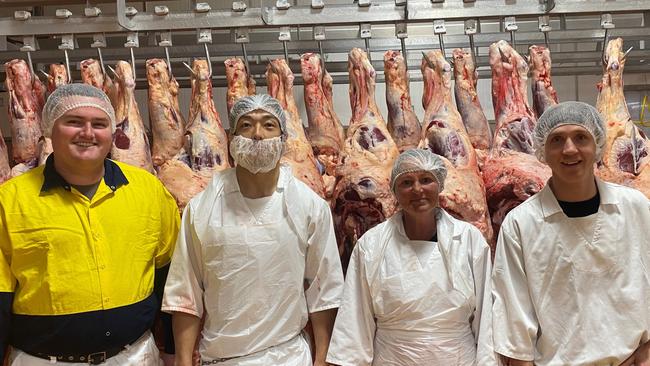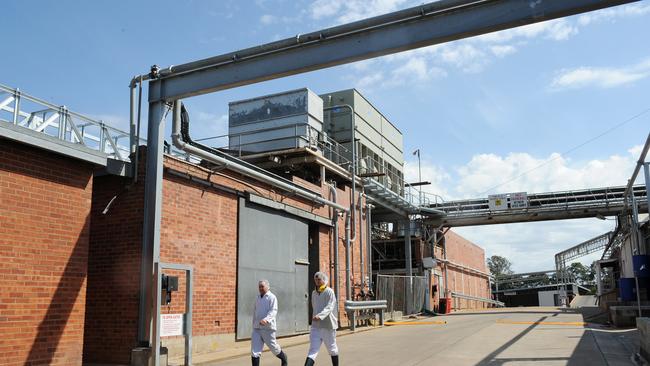Casino Food Co-op partners with TAFE NSW to meet demand as meat processing, livestock industry booms
The nation’s largest meat processing co-operative, tucked away in the “beef capital” in northern NSW, has joined forces with TAFE as demand for skilled workers spikes. Find out more.

Regional News
Don't miss out on the headlines from Regional News. Followed categories will be added to My News.
Australia’s largest meat processing co-operative has teamed up with educators as demand for skilled workers spikes in the booming red meat and livestock industry.
The national industry annual turnover was $75.45 billion in the 2021-2022 financial year – or 1.7 per cent of Australia’s total key industry turnover, according to the Australian Bureau of Statistics.
NSW has been leading the national earnings race, gobbling up 28 per cent of turnover – and the most recent figures show a 7.7 per cent spike in turnover on the prior financial year.
The industry employs more than 433,000 people nationally and key meat processing co-operative Casino Food Co-Op in northern NSW has been doing all it can to help get new workers into the industry.
The co-op has partnered with TAFE NSW to deliver a training program to give workers more practical skills and training to aid ongoing work in the livestock and meat industry.

The program, which found its feet in May, provides employees with an onsite Certificate II in Meat Processing (Abattoirs).
More than 10 per cent of Casino’s employable population aged 15 years and over work in the meat industry, compared to just 0.2 per cent statewide and 0.3 per cent nationally.
The town near Lismore is the regional hub of a sizeable local cattle industry and has long described itself as the “beef capital” of Australia – although the city of Rockhampton, Queensland also claims the title.
The popular Casino Beef Week festival is held each year to celebrate the industry.

Co-op chief executive officer Simon Stahl said more skilled workers were needed as the industry continued to grow.
“There is a demand to meet the needs of industry and community by training the workforce of the future,” he said.
“The TAFE NSW training is instrumental in ensuring our employees’ job readiness for working effectively in the industry, which in turn supports economic prosperity for the Northern Rivers region.”
“The comprehensive TAFE NSW course delivers our staff best-practice instruction and equips them with practical skills for a successful career in the emerging agribusiness sector.”

TAFE NSW head teacher of meat trades (agribusiness) Wayne McGee said the Certificate II could lead to many career opportunities – from traditional to quite diverse.
“The meat industry has extensive career pathways including food safety, work health and safety, quality control, livestock and administration, and food production and processing roles,” he said.
“Trainees learn to maintain equipment, adopt hygienic and safe work practices, gain an overview of the meat industry, and apply quality assurance procedures.”
Mr Stahl said employees were kept abreast of the latest industry trends as “technology in the meat and livestock industry is rapidly changing”.




